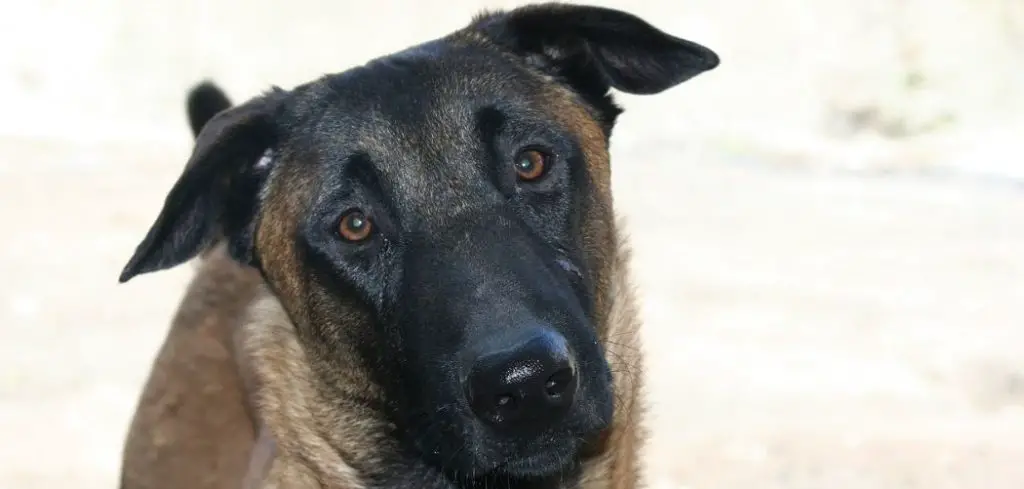When your dog is lethargic not eating and breathing heavily, it’s more than just a sign that they’re tired—it could signal a serious underlying issue.
Heavy breathing (also known as dyspnea or labored respiration) combined with low energy and appetite loss often points to distress in the respiratory, cardiovascular, or internal systems.
In this blog, we’ll unpack the common causes of these symptoms, what they might mean, and how you should respond.
Dog Lethargic, Not Eating with Heavy Breathing: Why It Happens
When your dog is lethargic not eating heavy breathing often arises due to respiratory infections, heart problems, pain, overheating, toxin exposure, anemia, or internal injuries. These conditions put stress on your dog’s body and can reduce oxygen supply, leading to faster or deeper breathing even at rest.

Dog Lethargic, Not Eating with Heavy Breathing: Common Causes
Respiratory Infections or Pneumonia
A respiratory infection like pneumonia or bronchitis can cause inflammation in your dog’s lungs, making it difficult for them to breathe properly.
The added effort to breathe may result in fatigue and appetite loss.
Other signs may include:
Coughing or wheezing
Nasal discharge
Shallow or rapid breaths
Fever
Veterinary treatment is essential for lung infections. Oxygen therapy, antibiotics, and rest may be required, especially if your dog is struggling to breathe.
Related: My dog is lethargic and not eating (Causes and when to worry)
Heart Disease or Congestive Heart Failure
Dogs with heart problems may develop congestive heart failure (CHF), which leads to fluid accumulation in the lungs or around the heart. This makes breathing harder and can leave your dog extremely lethargic and disinterested in eating.
Common signs include:
Persistent coughing
Swollen belly (from fluid buildup)
Difficulty lying down comfortably
Bluish gums or tongue
CHF is more common in older dogs or breeds like Dobermans, Boxers, and Cavaliers. If you notice any of these symptoms, consult a vet promptly.
Heatstroke or Overexertion
On a hot day or after intense physical activity, your dog may breathe heavily to cool down.
However, when accompanied by lethargy and lack of appetite, this may signal heat exhaustion or heatstroke.
Watch for:
Panting that doesn’t stop even at rest
Bright red gums or tongue
Vomiting or collapse
Move your dog to a shaded, cool area and offer small sips of water.
Heatstroke is a veterinary emergency—delay in treatment can lead to organ failure or death.
Pain or Physical Trauma
Dogs in pain—whether from joint problems, injury, or abdominal discomfort—often breathe faster or deeper due to distress. Pain also reduces their appetite and energy.
Look for:
Reluctance to move
Whining, pacing, or restlessness
Changes in posture (e.g., arching or curling up)
Pain can stem from arthritis, internal injuries, or even dental disease. A physical exam and imaging may be needed to diagnose the problem.
Toxin Exposure
Some poisons (like insecticides, rodent bait, or human medications) can affect your dog’s respiratory system, causing heavy breathing, weakness, and vomiting.
Ingested toxins can also damage organs, leading to rapid decline.
If your dog was near chemicals or unknown substances before these symptoms started, call your vet or a poison control hotline immediately.
Anemia or Blood Loss
When a dog suffers internal bleeding or has a reduced red blood cell count, the body struggles to deliver oxygen—leading to fast or heavy breathing.
Other warning signs include:
Pale or white gums
Weakness or collapsing
Fast heart rate
Cold paws or ears
Anemia can be caused by trauma, tick-borne illness, or autoimmune disease.
Blood tests are required to diagnose the cause and may reveal the need for transfusion or other urgent treatment.
Collapsing Trachea or Airway Obstruction
Dogs with a collapsing trachea (common in small breeds) or temporary airway obstruction may breathe heavily and appear panicked or exhausted.
Signs include:
Goose-honk cough
Gagging or retching
Labored breathing, especially when excited
If your dog has a structural issue in their airway, a vet may recommend lifestyle changes, weight loss, or in some cases, surgery.
What to Do If Your Dog Is Lethargic, Not Eating, and Breathing Heavily
Here’s what you can do immediately:
Move your dog to a quiet, cool space – Limit movement and prevent overheating.
Watch their breathing rate – Over 30–35 breaths per minute at rest may be abnormal.
Check gum color – Blue, pale, or bright red gums can indicate oxygen or circulatory issues.
Avoid stress or exertion – Keep your dog calm and allow rest.
Do not give any medications – Especially not human meds; some can worsen symptoms.
Always monitor for worsening symptoms and contact your vet if your dog’s condition doesn’t improve in a few hours.
When to Call or Visit Your Vet
Seek urgent veterinary care if:
Breathing is labored or your dog pants excessively at rest
Gums are blue, pale, or very red
Your dog is unwilling to move, drink, or respond
Appetite is gone for over 24 hours
You suspect toxin exposure or trauma
Heavy breathing should always be considered serious—especially when paired with lethargy and appetite loss. Don’t wait for symptoms to worsen.
Related: My dog is drooling and lethargic (Here’s why)
Key Takeaway
If your dog is lethargic not eating heavy breathing, it’s a sign that something more than fatigue is at play.
While some causes are treatable with rest and supportive care, others—like heatstroke, heart disease, or respiratory infections—require urgent medical attention.
Trust your gut, observe your dog closely, and never hesitate to contact your vet.
Quick action can protect your dog’s health and possibly save their life.
